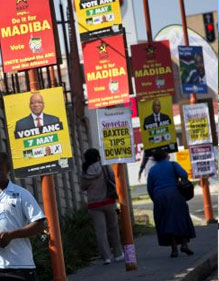
Dear Corruption Watch,
Businessman Hugh Glenister’s Constitutional Court appeal calls President Jacob Zuma a “corrupt crook” and his government “extremely corrupt”. The president, in turn, calls this defamatory. Can you please explain the law of defamation? When does name-calling become illegal? What recourse do people have and are different standards applied to senior public officials?
Confused
Dear Confused,
The broad brush-strokes of the law of defamation are well established. Let’s start with what it means to make a defamatory statement about someone. To know whether a statement is defamatory, you have to know the meaning of a statement. The courts have held that the meaning of a statement is what a reasonable person of ordinary intelligence would attribute to the statement.
Once you’ve worked out what the statement means, then you have to work out whether the meaning is defamatory of someone. The courts tell us that a statement is defamatory if it is likely to damage the good esteem in which the plaintiff (the person suing for defamation) is held by the reasonable person to whom the statement is published.
In the absence of any context, Glenister calling the president a “corrupt crook” would probably be understood by the reasonable reader as calling him a criminal who is willing to act dishonestly for money or personal gain. If that’s the meaning of the statement, it’s clearly defamatory since it’s likely to damage the good esteem in which the person is held by the average person.
Of course, if the threshold for defaming someone is so low, then it would seem that every time a newspaper gets published, half of the cabinet gets defamed. However, the reason our papers aren’t going bankrupt is because there are a range of defences which newspapers (and others) can raise to avoid being sued.
The most important defences are:
- First, that the statement was true and published in the public interest. Glenister is not afraid of litigation. He may be waiting for an opportunity to go to court and try to convince a court that the president is a corrupt criminal and that it is in the public interest to know this.
- A second common defence is that a statement was made on a privileged occasion. There are a variety of different types of privileged occasions. For example, section 58(1) of the constitution protects cabinet members and parliamentarians from being sued for defamation for anything they have said in or submitted to the National Assembly. Undoubtedly, the EFF has pored over that provision.
- A third defence, often used by newspapers, is that the defamatory statement was a fair comment. To prove fair comment, the newspaper needs to show that its statement was about an issue that is in the public interest and a fair comment based on facts that are clearly stated in the newspaper article or are otherwise notorious.
- The final defence worth looking at is called the Bogoshi defence. This defence applies to newspapers which publish defamatory statements that turn out to be wrong. Newspapers work to tight deadlines and often make a good effort to verify the facts but, with more time and full information, turn out to have been wrong. A court will not allow them to be sued for defamation if they can show that, at the time they published the statement, they had reasonable grounds for believing it to be true.
Senior politicians are no different to you and me. They have a right to dignity and can be defamed. However, because of their position in society, there’s a strong public interest in the fact that their actions are investigated and commented on critically by newspapers and the public.
For this reason, the defences set out above will normally apply when politicians are defamed, so those politicians normally don’t bother suing for defamation -even when they believe that they’ve been defamed.
• This article was first published in Sunday Times: Business Times

